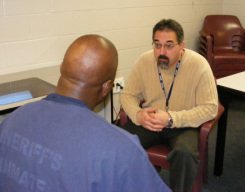Jairus’ Daughter – a Bible Story that Sparked My Eating Disorder Recovery
Could a simple Bible story spark eating disorder recovery? Well, for me, it did. The account of Jairus’ daughter, found in Mark 5:35-43, became the catalyst to hope, life, freedom, and yes, my recovery. I chronicle my  eating disorder odyssey, recovery included, in my book, “Thin Enough: My Spiritual Journey Through the Living Death of an Eating Disorder.” From this scriptural passage, I encountered tangible proof that God’s Word was relevant and applicable. I learned some good news, all right.
eating disorder odyssey, recovery included, in my book, “Thin Enough: My Spiritual Journey Through the Living Death of an Eating Disorder.” From this scriptural passage, I encountered tangible proof that God’s Word was relevant and applicable. I learned some good news, all right.
Nothing’s too difficult; no one’s too impossible for God.
I saw that in Jairus’ daughter. I have, likewise, seen it in my own life, as well as the lives of others. And this simple Bible story is now a declaration of hope to all young girls and women, dealing with eating disorders, food, weight and body image issues. You, too, can arise!
- “Little girl, I say unto you, arise.” Mark 5:41
I had done and been so many horrible things. As far as I was concerned, I was on my way to hell. But I couldn’t shake the thoughts of this story. Was there hope that I wasn’t doomed after all?
Jairus’ Daughter – a Bible Story that Sparked My Eating Disorder Recovery Read More »








